Rhubarb macerate with honey
Rhubarb syrup, obtained by cold maceration with honey, in addition to the very good taste, also has many therapeutic properties: detoxifying, tonic rich in minerals and vitamins (such as potassium, phosphorus, magnesium, iron, zinc, vitamin K and vitamin C ), digestive, diuretic, good in lowering LDL cholesterol, for treating anemia, anorexia and asthenia.
Servings: 20 servings
~ 20 servings, one serving being estimated at: ~ 30 ml syrup (one tablespoon)
Ingredients
Materials
- - 800g jar
- - sieve
- - knife
Preparation
 Remove the leaves from the rhubarb stem, as they are poisonous. Then clean the wood with a vegetable cleaner or simply try peeling them from one end, by pinching with the tip of a knife, then pull the wood fiber. After removing the wood, the rhubarb sticks are washed well under running water.
Remove the leaves from the rhubarb stem, as they are poisonous. Then clean the wood with a vegetable cleaner or simply try peeling them from one end, by pinching with the tip of a knife, then pull the wood fiber. After removing the wood, the rhubarb sticks are washed well under running water.- Leave the rhubarb stalks to dry, eventually dab with a kitchen towel to remove water left over after washing.
Rhubarb already has a high water content. It is very important to dry them well, otherwise it is possible to ferment in the process of maceration with honey.  Cut rhubarb stalks into slices of about 1 cm and add to the jar.
Cut rhubarb stalks into slices of about 1 cm and add to the jar. Add the honey to the jar, little by little, in several stages, waiting for it to drain through the rhubarb slices. It is important that, in the end, the honey in the jar exceeds the level of rhubarb slices.
Add the honey to the jar, little by little, in several stages, waiting for it to drain through the rhubarb slices. It is important that, in the end, the honey in the jar exceeds the level of rhubarb slices. Seal the jar tightly with a lid and leave it to soak for 24 to 48 hours in a dark, cool place.
Seal the jar tightly with a lid and leave it to soak for 24 to 48 hours in a dark, cool place.
After only 30 minutes, you will notice how the honey extracts water from the rhubarb stalks and a thin syrup forms. After a few hours, it is recommended to shake the jar slightly. După 24 (sau 48) ore de macerare, veți obține un sirop subțire, dar foarte concentrat și veți observa cum feliile de rubarba au dimensiunile ușor reduse.
După 24 (sau 48) ore de macerare, veți obține un sirop subțire, dar foarte concentrat și veți observa cum feliile de rubarba au dimensiunile ușor reduse. Strain the syrup through a sieve.
Strain the syrup through a sieve. Finally, the syrup is placed in a container, recommended made of glass, in the refrigerator. It is recommended to be consumed in a week,
Finally, the syrup is placed in a container, recommended made of glass, in the refrigerator. It is recommended to be consumed in a week,
Administration
Consume one tablespoon (~ 30 ml) taken as such or in combination with various liquids when you feel the need. However, it is not recommended to exceed 5 servings a day, as it can become a diuretic.
It is not recommended to consume it in the form of juice immediately after a meal.
For therapeutic purposes, one tablespoon before meals is recommended, 3 times a day.
Observations
Rhubarb syrup with honey obtained by maceration is much more valuable in terms of nutritional values than the classic rhubarb syrup, because it has not been subjected to a thermal process.
Effects and benefits
- tonic
- detoxifier
- rich in minerals and vitamins such as potassium, phosphorus, magnesium, iron, zinc and vitamin K and C
- anti-inflammatory
- antioxidant
- anticancer
- antidiabetic
- purgative
Side effects
- purgative if consumed in large quantities or very cold
FAQ 💡❓
What are the main benefits of rhubarb syrup with honey?
➡️ The syrup aids digestion, relieves constipation, supports liver detoxification, and has a remineralizing effect thanks to its vitamins and minerals.
How is rhubarb syrup with honey prepared correctly?
➡️ Rhubarb stalks are washed, cut into pieces, and left to macerate with honey for a few days until the liquid gains its specific taste and color.
How long should rhubarb syrup be left to macerate?
➡️ Usually between 2 and 5 days, depending on room temperature and the desired intensity of flavor.
How is rhubarb syrup with honey administered?
➡️ Take 2–3 tablespoons daily, either plain or diluted in water, preferably before meals.
Is rhubarb syrup a natural laxative?
➡️ Yes, due to the anthraquinones contained in rhubarb, the syrup has a mild laxative effect and can help with occasional constipation.
Can rhubarb syrup be used for detoxifying the body?
➡️ Yes, rhubarb has depurative properties and supports the liver in detoxification processes.
What are the contraindications of rhubarb syrup with honey?
➡️ It is not recommended for pregnant or breastfeeding women, children under 12, and people with kidney disease or acute diarrhea.
What are the possible side effects of excessive consumption?
➡️ It may cause abdominal cramps, diarrhea, mineral imbalances, or dependency on natural laxatives.
Can rhubarb syrup be used long-term?
➡️ No, it should only be taken for short periods to avoid intestinal irritation and mineral imbalances.
Why is rhubarb combined with honey instead of sugar?
➡️ Honey adds antibacterial and nutritional properties, while sugar would burden digestion and reduce therapeutic value.
Can rhubarb leaves also be used for the syrup?
➡️ No, the leaves contain high amounts of oxalic acid and are toxic; only the stalks are used.
How should rhubarb syrup with honey be stored?
➡️ Keep it in a glass jar, tightly sealed, in a cool and dark place; after opening, it should be refrigerated.
Can children take rhubarb syrup?
➡️ It is not recommended for children under 12 due to its strong laxative effects.
Does rhubarb syrup help with weight loss?
➡️ It may indirectly help by regulating digestion and eliminating excess water, but it is not a specific weight-loss remedy.
What vitamins and minerals does rhubarb contain?
➡️ Rhubarb is rich in vitamin K, vitamin C, calcium, potassium, and fiber, all of which support bone health and the digestive system.
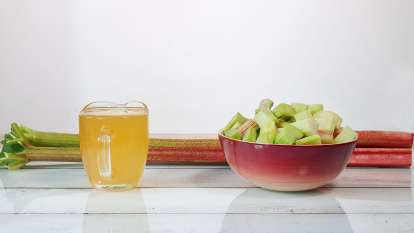
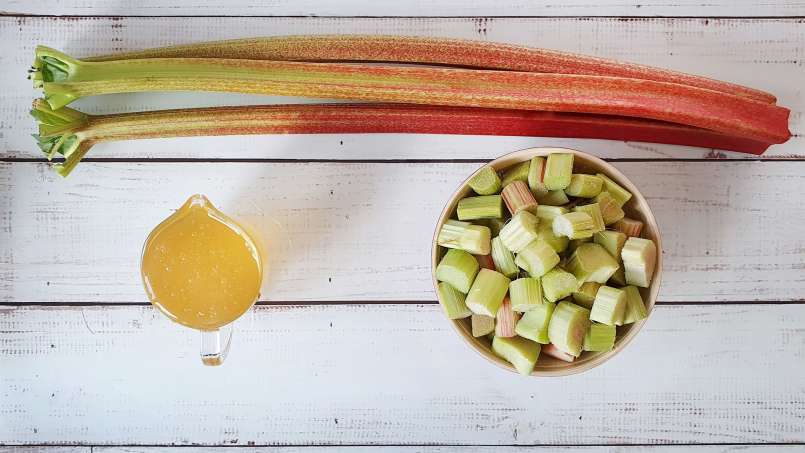
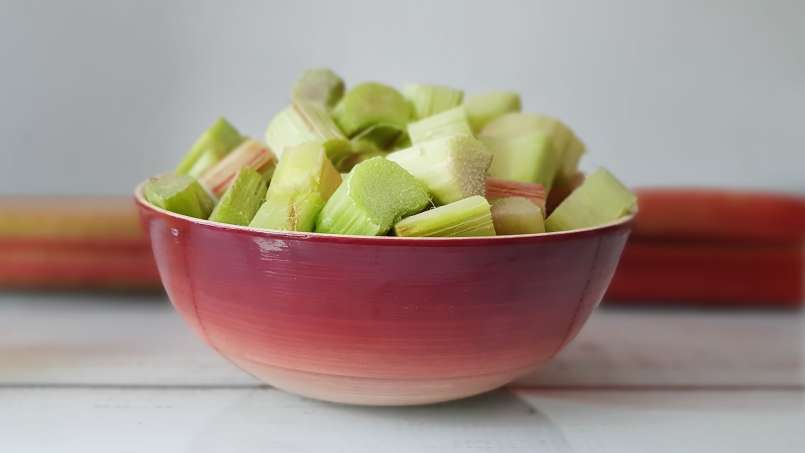
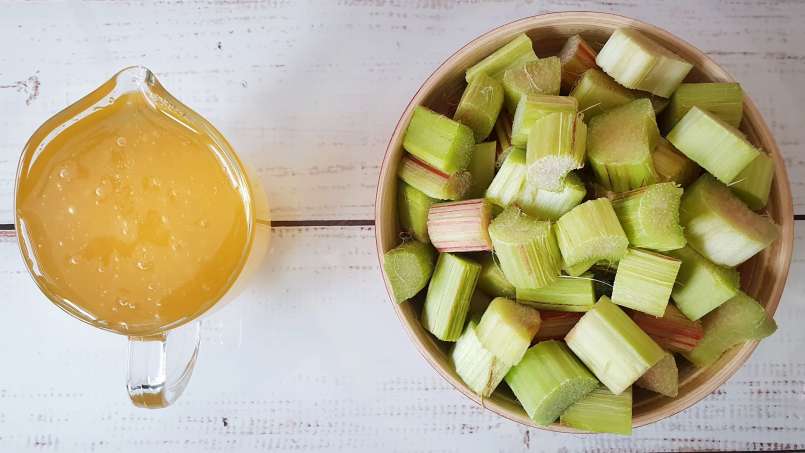
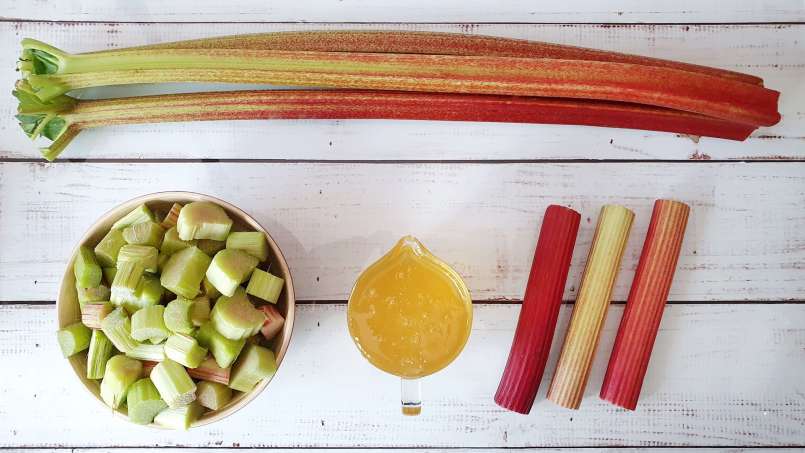
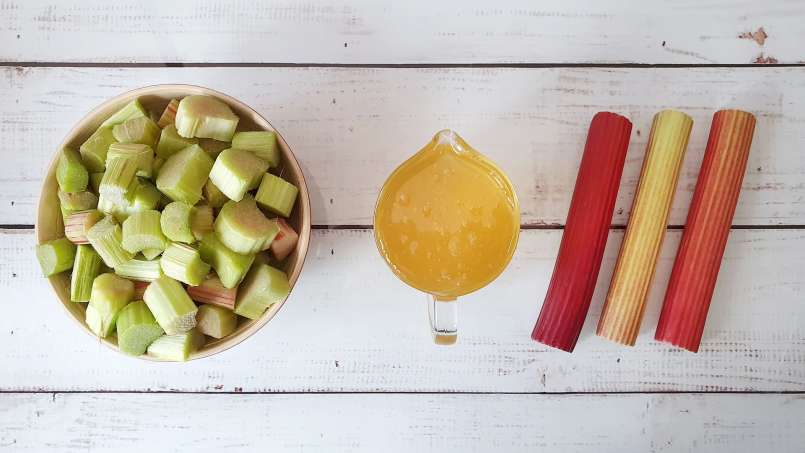
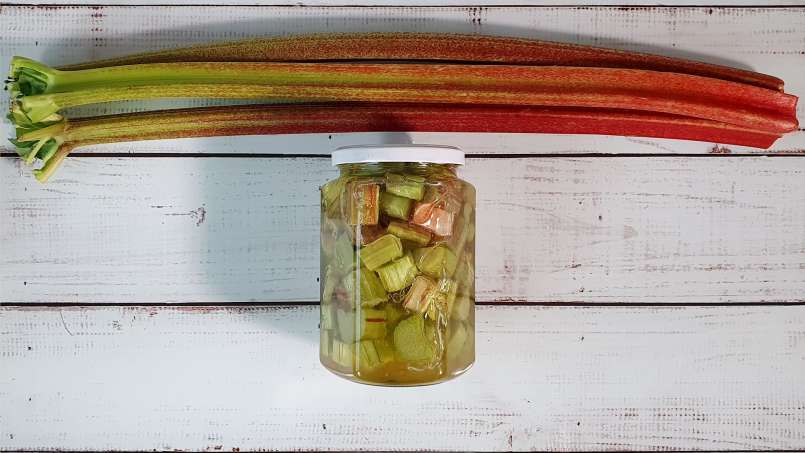
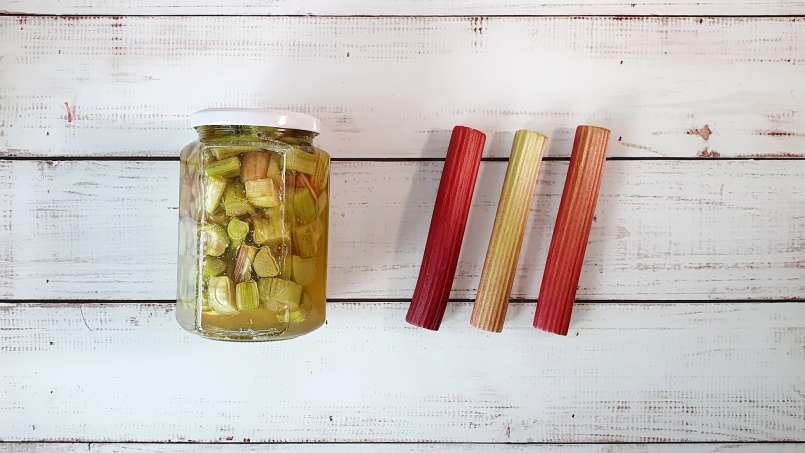
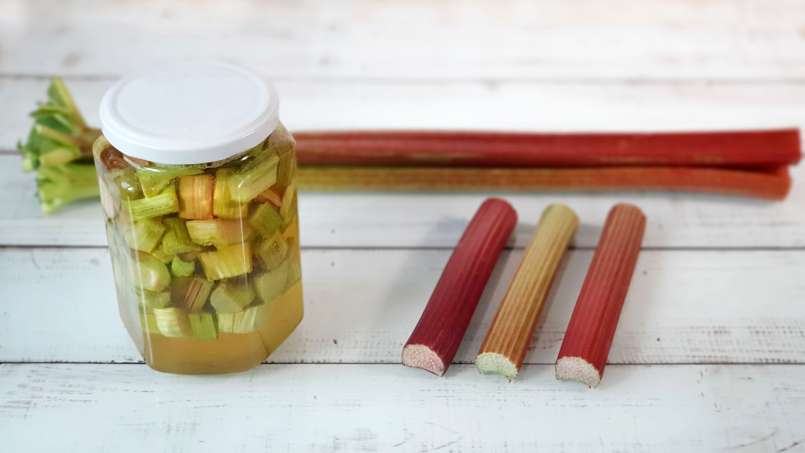
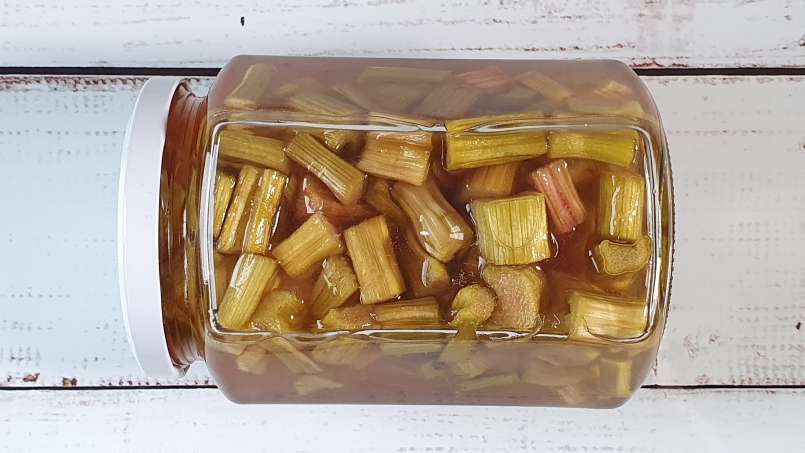
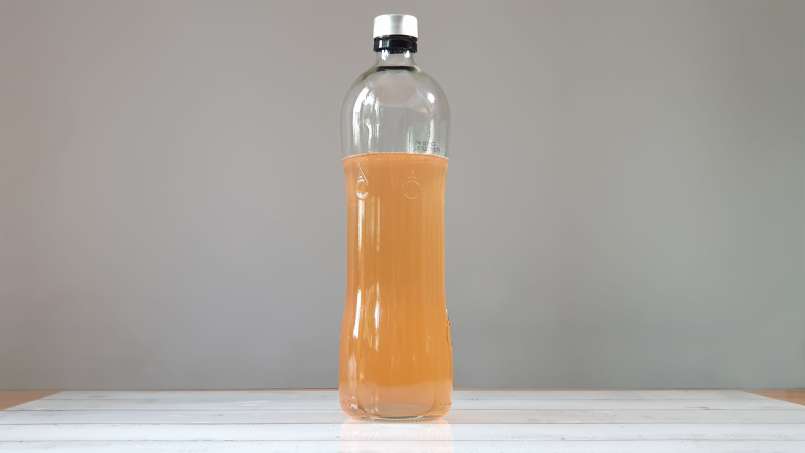
Comments